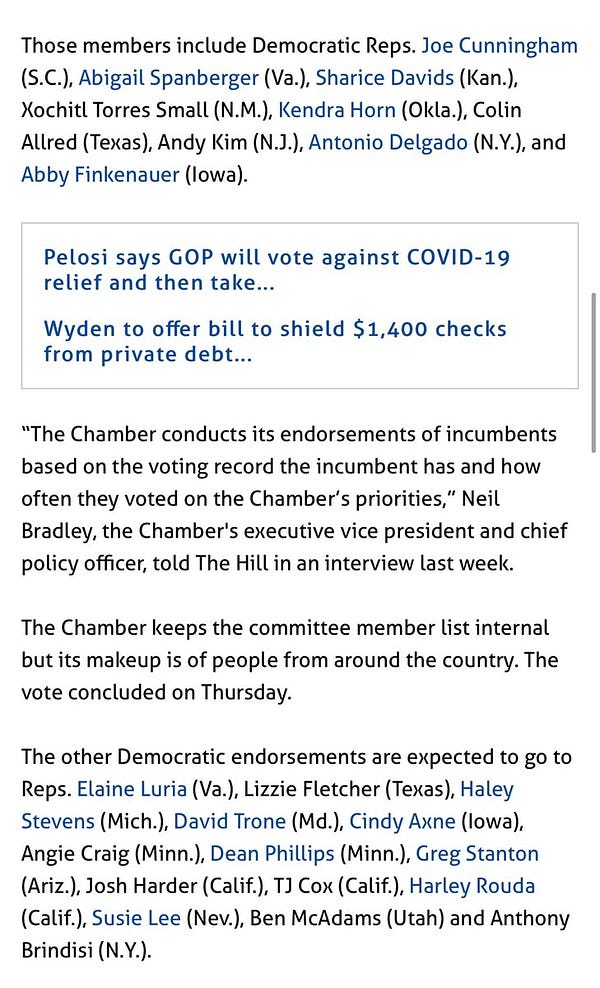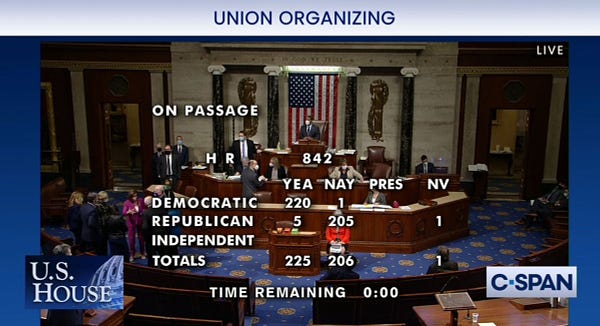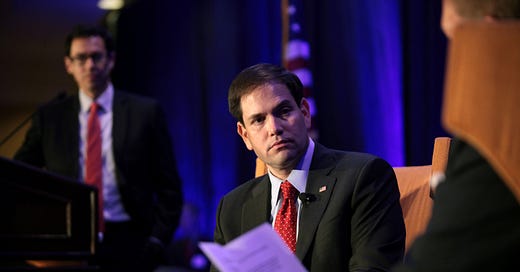Marco Rubio is a Republican Party bellwether, a man perpetually on the cutting edge of the next great attempt at overhauling the reactionary brand.
After getting his political career off the ground as a chummy state House Speaker in Florida, he ran for Senate as a Tea Party Republican in 2010, then briefly tried to reinvent himself as an advocate for "sensible" immigration reform. After that backfired spectacularly, he ran for president as an anti-Trump neocon standard-bearer. When that backfired spectacularly, Rubio settled back into his job in the Senate and reemerged as a loyal Trump ally who has since taken up the ex-president's culture war against every entity that's ever banned or criticized him.
Publicly, Rubio is a chameleon; privately, he is by all accounts a snake who has burned nearly every bridge he's crossed, which is a substantial reason his own state dealt him the death blow in the 2016 Republican primary.
Now we've got the next iteration of Rubio and the Republican Party: flirting with pro-worker rhetoric in order to reel back in American big business, the traditional wind beneath the GOP's sails. On Friday, Rubio published a surprising USA Today op-ed in support of the unionization effort at Amazon's warehouse in Bessemer, AL.
Rubio's pro-Bessemer op-ed, however, should not be seen as the right wing's olive branch to the labor movement. It's more of a warning shot at Amazon, and the Chamber of Commerce, and the rest of America's corporations who have (quietly or otherwise) aligned traditionally with the GOP's economic policies but publicly shunned them in recent years as the party has careened further right.
Rubio is quite clear about this in the op-ed, though he frames it as a defense of common people against woke capital.
"Here’s my standard: When the conflict is between working Americans and a company whose leadership has decided to wage culture war against working-class values, the choice is easy — I support the workers," Rubio writes. "And that’s why I stand with those at Amazon’s Bessemer warehouse today."
He adds:
Uniquely malicious corporate behavior like Amazon’s justifies a more adversarial approach to labor relations. It is no fault of Amazon’s workers if they feel the only option available to protect themselves against bad faith is to form a union. Today it might be workplace conditions, but tomorrow it might be a requirement that the workers embrace management’s latest “woke” human resources fad.
It isn’t clear whether the union effort is primarily driven by complaints from its workers, agitation from Democratic operatives, or just the fact that Jeff Bezos has now become the first person in history worth $200 billion. But Amazon should understand that waging a war on small businesses and working-class values has burned bridges with former allies.
Rubio's support for the effort in Bessemer isn't unequivocal; he denounces the PRO Act in the same op-ed, saying it "would essentially mandate adversarial relationships between labor and management." It's not even about the workers and the prospects for building a "multi-ethnic, multi-racial working-class" coalition within the Republican Party that Rubio touted after Trump performed unexpectedly well in the 2020 election. It's conditional, basically, on whether the company being unionized has paid lip service to Black Lives Matter, LGBTQ rights, immigration activists, and especially liberal demands for denunciations of Donald Trump at various points throughout his presidency. All of these things infuriate conservatives, and Amazon is a clear offender; the company publicly backed Black Lives Matter after George Floyd's killing by Minneapolis police in May, and CEO Jeff Bezos owns the Washington Post, whose reporters (though not so much its cursed op-ed pages) more often than not covered the Trump administration adversarially.
There's another thing going on, though. Rubio's attack on Amazon is also an instance of pure retaliation against companies that have distanced themselves from the Republican Party over the past few election cycles, and a demand to get in line if they want to maintain their grip over American economic, political, and social life.
For a long time conservatives were happy to accept corporate lip-service to social justice so long as big business kept giving Republicans money, but as their financial advantage over Democrats has disappeared, so too has their patience. In the 2020 election, the U.S. Chamber of Commerce broke with longstanding precedent and endorsed more nearly two dozen House Democratic candidates in the general election—more than three times as many as they endorsed in 2018, and nearly as many as the number of House Republicans they endorsed. This infuriated the right's establishment and populist factions alike. After the Capitol riot on January 6, 20 of the GOP's 30 biggest corporate PAC donors said publicly that they would at least temporarily abandon their support of Republicans who objected to the certification of Joe Biden's election, hoping either to get the best PR outcome possible or push the GOP back towards the middle for fear of losing the money behind it.
And it's been going on since well before Trump took office; HB2 in North Carolina, the legislation which kicked off the national GOP's obsession with where trans people go to the bathroom, and SB1070 in Arizona, the state's hardline anti-immigrant law that passed in 2010, brought a wave of corporate denunciations and boycotts and promises to drop support of the GOP. Marco Rubio is right: for the past decade, it's been the case that companies presented publicly as "progressive" while simultaneously seeking cover from the sorts of anti-worker legislation Rubio and his Republican colleagues have been passing for decades.
The thing is that corporations never have and never wanted to play the role of social justice harbingers that they've been given. Big business has been aligned with the reactionary project in America since the industrial age; right-to-work legislation, which would be outlawed by the PRO Act, was itself the brainchild of a white supremacist whose racist appeals were not only wildly successful in stifling the labor movement in the South but exist to this day in all corners of the country. Henry Ford was an avowed anti-Semite and Nazi sympathizer. Right-wing bankers and corporate leaders plotted to overthrow FDR's government, and might've succeeded if they had picked someone other than the anti-fascist Smedley Butler.
So it's a relatively new concept for people to look to corporate America for signs of progress—one that's been brought on by the slow but noticeable diversification of the upper rungs of the corporate ladder, accelerated by the economic neoliberal turn of the Democratic Party even as it moved further left on social issues, and kicked into high gear by Donald Trump's denunciation of trade deals, use of tariffs, and public feuding with corporate leaders and the companies they run even as he delivered them that "big, beautiful tax cut." Because of all of these factors as well as the consolidation of power into corporations and the depoliticization of American society—which is ironically thanks at least partially to decades of union-busting—corporate America has displaced political and civil rights leadership as the North Star of social progressivism.
But it's not necessarily a role they're comfortable with, historically or contemporarily speaking, and right now they're being slammed from both directions—by conservatives because they've waded into the culture war, and by the left over their hardline opposition to anything resembling a democratic workplace or worker self-determination. The demands from activists and their own workers have also grown beyond lip service; diversity trainings and diverting PAC money is fine, but once reckonings over sexual misconduct and racism and abuse of employees began affecting people in the C-suite and their friends, all bets were off. That's cancel culture and cancel culture is bad.
The Chamber's bet on the Democrats, which was motivated purely by self-interest, isn't even paying off. All of the 23 House Democrats the Chamber endorsed voted for the PRO Act, as did five House Republicans, and just one House Democrat total voted against it: Rep. Henry Cuellar, whom the Chamber endorsed in his 2020 primary against progressive challenger Jessica Cisneros.




Corporate America might appreciate and even benefit from some positive press because of its fraudulent appeals to social justice, but that is by no means its reason for existing. Its reason for existing is to make money and build power. As writer and philosopher Dr. Vanessa Wills put it ably following the Capitol riot: "As the situation is pushed further and further to a point of crisis, the choice becomes one between fascism and profits, or socialism and human freedom. And from the point of view of capitalism, fascism will always emerge as the lesser evil of those two."
Marco Rubio's letter and the Republicans' pro-worker posture is an escape route out of business's uneasy role as America's progressive champion. The water is warmer on the other side; it's only a matter of time before corporate America jumps back in.






